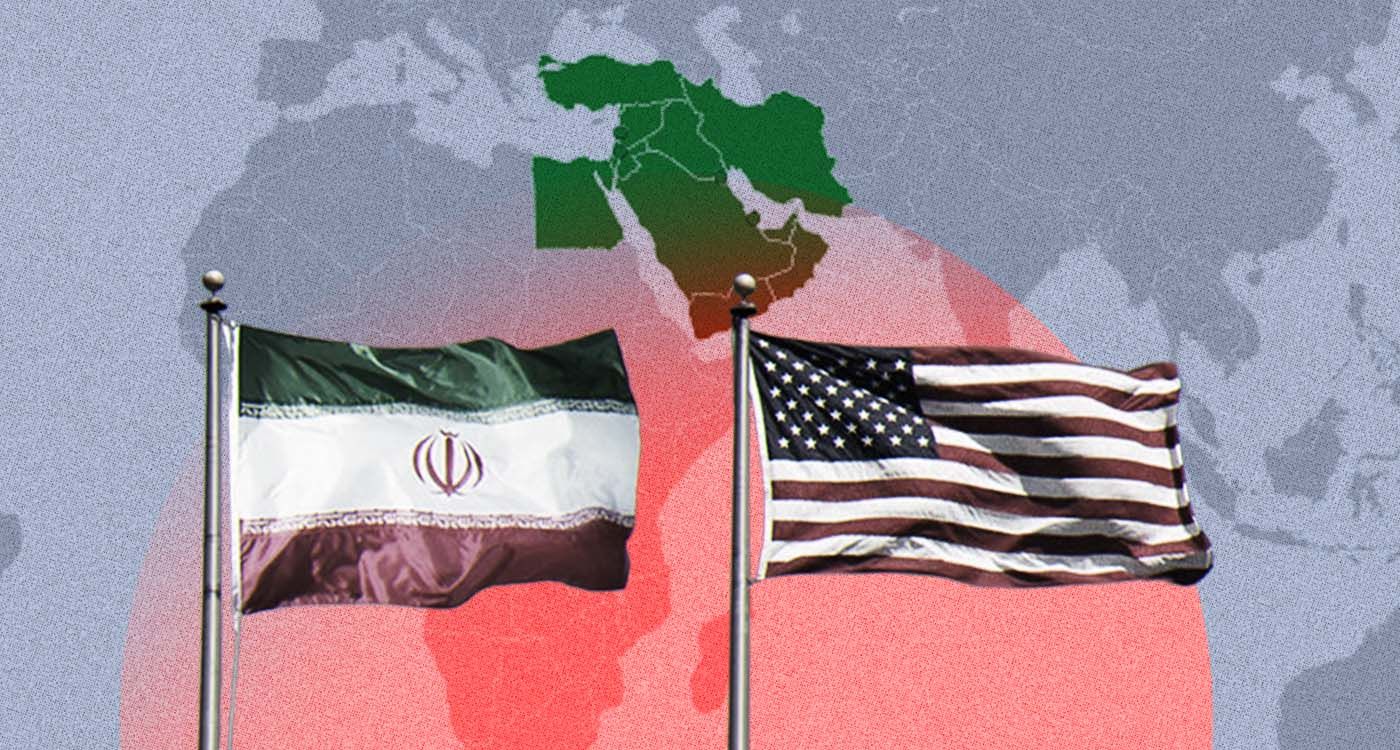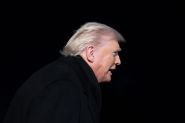
Washington and Tehran are moving on starkly opposing trajectories in the Middle East. Under President Donald Trump, the United States has prioritized dismantling any armed presence operating outside the framework of state legitimacy and eradicating terrorism from the region. This approach is part of a broader strategy to prepare the ground for a new Middle East and pursue comprehensive peace.
Iran, by contrast, is working to preserve what remains of its regional military proxies, seeking to use them as bargaining chips in the nuclear negotiations, now approaching their fourth round this coming Saturday.
In the lead-up to President Trump’s visit to the region—beginning with Saudi Arabia—the US administration directed its forces to maintain counterterrorism operations, “particularly in Syria,” and also called on Syria’s interim president, Ahmad al-Sharaa, to prohibit all political and military activity by Palestinian factions and to expel their operatives from the country.
Acting on these demands, Syrian security forces arrested several leaders of the Islamic Jihad movement, prompting Saraya al-Quds to call for their release. President al-Sharaa subsequently banned Palestinian groups from bearing arms, declaring that only the Syrian State may hold that authority. He also refused to allow Syrian territory to serve as a base for attacks on neighboring countries.
As Syria’s Foreign Minister stated before the UN Security Council, “Syria poses no threat to any country in the region, including Israel.”
Before meaningful peace talks can advance in the Middle East, the Trump administration is focused on disarming Iran’s military factions, particularly Hamas and Hezbollah, as a key precondition to any discussions on normalization.
Diplomats are closely tracking regional pivotal developments, including growing protests in Gaza against Hamas’ rule, calling for Hamas to leave the Strip, as well as Palestinian President Mahmoud Abbas’ announcement of the creation of a new position—Vice President for Gaza.
Hamas now finds itself caught between the pressures of the Palestinian Authority and the frustration of its own people, while simultaneously facing the ongoing threat of Israeli military action.
As peace efforts take shape, President Abbas has outlined his conditions for a lasting resolution, which include, “The establishment of an independent, sovereign Palestinian State with full United Nations membership and global recognition; a complete cessation of Israeli military operations in the West Bank; a freeze on Israeli settlement expansion and settler violence; the protection of holy sites in the West Bank and Jerusalem; and a comprehensive ceasefire in Gaza, the West Bank and Jerusalem, coupled with confidence-building measures to pave the way for a genuine political process that will lead to a just and comprehensive peace, based on the principles of international law and its resolutions.”
Abbas emphasized that these steps must lead to a just and lasting peace, grounded in international law and aligned with relevant UN resolutions.
On the Iranian front, Tehran is closely monitoring regional developments and working to preserve the strategic gains and influence secured by the Iranian Revolution, particularly through its proxies. After President Trump called for the nuclear issue to be resolved either through diplomacy or war, Iran swiftly seized the diplomatic opportunity, seeking to bypass Israel’s military options. According to Iranian officials, indirect negotiations have taken place, with Tehran expressing its intention to involve European officials behind the scenes, signaling its readiness to engage within the international framework. In response, Iran has abandoned its military factions, including Hezbollah, and has firmly rejected discussions on any related issue. Instead, Iran insists on direct negotiations with the leadership of these groups, a stance it has communicated to both Washington and Riyadh.
Amid these developments, a Lebanese security official has confirmed that the security situation in the country remains under control. However, Iranian Ambassador Mojtaba Amani was summoned to the Ministry of Foreign Affairs following his statement that “disarmament is a clear conspiracy against the state.” Prior to his appearance, Amani issued a public clarification, reaffirming that “Iran respects Lebanon’s internal agreements on Hezbollah’s weapons and does not impose its vision on Lebanese internal affairs.” The Secretary-General of the Ministry of Foreign Affairs reminded the ambassador of the necessity “to adhere to the Vienna Convention, especially regarding national sovereignty and non-interference in their internal matters.” The message was clear, “Lebanon is a sovereign, independent state that will not tolerate foreign interference in its domestic affairs, nor will it allow anyone to dictate its position or negotiate on its behalf. With the election of Joseph Aoun, Lebanon has exited the axis of resistance (Al-Moumanaa),” declared a prominent sovereign leader, signaling a clear shift. Hezbollah understood the message, especially after President Aoun stated, “There is no solution in Lebanon except through diplomacy.” He further added, “To those who seek war, I say: We can no longer bear the language of war.”
On another front, sources within the Lebanese Forces (LF) argue that the Shiite Amal-Hezbollah duo, particularly Hezbollah, is in a difficult position and is actively seeking a way out. The party is advocating for dialogue and a strategy to resolve the weapons issue, aiming to preserve its position and to legitimize the gains it has achieved through its military strength—essentially negotiating weapons for political leverage. In response, Hezbollah officials have escalated their rhetoric, reaffirming their commitment to retaining their weapons while outlining conditions for their eventual relinquishment.
This was echoed by Speaker of Parliament Nabih Berri in a statement, “We will not surrender our weapons now until Israel’s conditions are met. Our weapons are our cards, and we will not give them up without the full implementation of the ceasefire agreement and a dialogue about their future.” A prominent sovereignist leader emphasized that the duo, in particular Hezbollah, can no longer impose its demands or pursue further gains. The party has lost, though it refuses to acknowledge this reality. Israel has assassinated its leaders, destroyed the south and displaced its once-supportive base, which no longer backs Hezbollah but instead calls for liberation and a state that represents all its citizens.
The decision to prevent weapons outside the law has been made, and the implementation phase has begun. Proxies should now comply, just as the Iraqi factions affiliated with Iran voluntarily handed over their weapons to the state.




Comments